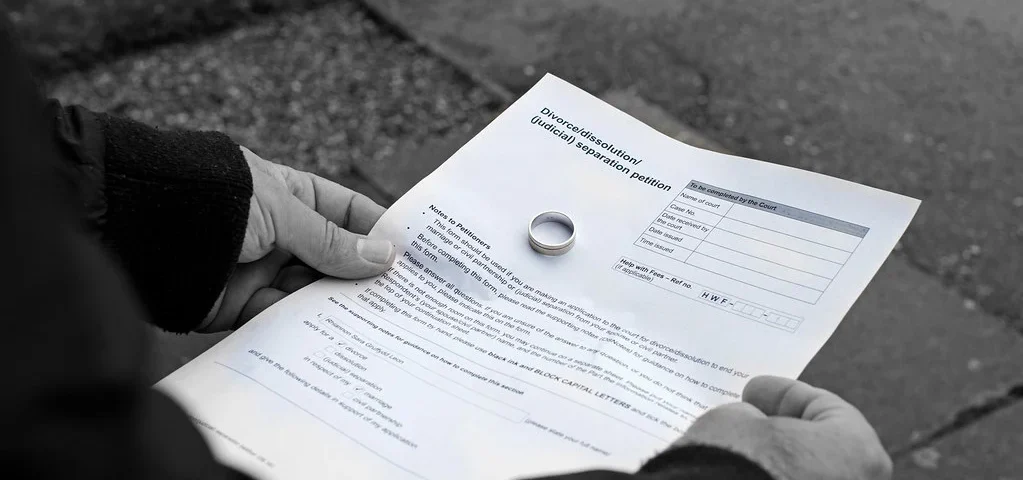When navigating the complexities of divorce or dissolution, one of the most crucial aspects is the fair division of finances and assets. Whether you’re pursuing a financial divorce settlement, a consent order, or a clean break agreement, comprehensive financial disclosure is essential. In the UK, this is typically achieved through a document known as Form E. This guide provides detailed information about Form E, its purpose, and the importance of accurate completion in divorce proceedings.
What is Form E?
Form E is a detailed financial questionnaire required during divorce, civil partnership dissolution, or legal separation (judicial separation) proceedings in the UK. The form spans approximately 28 pages and is used to provide a full disclosure of your financial situation to the court and to the other party involved. This document is essential for applying for a Financial Order, whether you are seeking a financial divorce
settlement through court or trying to resolve matters amicably outside of court.
In addition to court proceedings, Form E can also be utilized in voluntary discussions. For instance, it can be used during negotiations for a financial consent order or a clean break agreement, often facilitated through family law solicitors, mediation, or collaborative law processes. The form is sometimes referred to as the ‘Form E Financial Statement’ or simply an E Form.
You can download Form E from the Government website. While it is possible to complete the form independently, it is highly recommended to seek advice from an experienced family lawyer or solicitor. Given the complexity of financial matters in divorce, professional guidance ensures that the form is completed accurately and in your best interests.
Key Aspects of Form E
Form E facilitates the exchange of financial information between parties and serves as a foundation for discussions about asset division. It is distinct from Form D81, which provides a comprehensive financial overview to the court and outlines the practical impact of any proposed financial orders on family finances and living arrangements.
What Information is Required for Form E?
When filling out Form E, you will need to provide detailed information and attach supporting documents to validate the accuracy of your disclosure. The required information includes, but is not limited to:
1. Personal Information: Details about yourself and your children, including names, ages, and living arrangements.
2. Matrimonial Home Details: Valuation of the matrimonial home and a mortgage statement.
3. Bank Accounts: Information on personal bank accounts, building society accounts, and national savings accounts.
4. Investments and Insurance: Documentation for investments, life insurance policies, and pensions.
5. Business Interests: Details of any business interests you may hold.
6. Income Details: Information on employment income, self-employment or partnership income, and any other sources of income.
7. Debts and Liabilities: A detailed list of debts and liabilities.
8. Financial Needs: Information on your income and capital needs, as well as those of your children.
9. Requested Court Orders: Details of the financial order you are requesting from the court.
10. Statement of Truth: A declaration confirming that the information provided is accurate and complete.
Do You Need a Solicitor to Complete Form E?
While you can complete Form E on your own, many find the 28-page document daunting. Engaging a solicitor specializing in family law can significantly ease the process. Here’s why:
1. Accuracy and Acceptance: A family law solicitor ensures that all information is correctly completed and presented, increasing the likelihood of the form being accepted by the court. Properly prepared documents can expedite the proceedings and reduce potential delays.
2. Legal Rights Protection: A solicitor can help protect your legal rights throughout the process, ensuring that your interests are represented and that you receive a fair outcome.
3. Scrutiny of Disclosure: An experienced solicitor can scrutinize the financial disclosure provided by the other party. They can identify any discrepancies or potential attempts to mislead, seeking remedies if necessary.
4. Stress Reduction: Completing Form E can be stressful, especially when dealing with complex financial matters. A solicitor can manage this task, allowing you to focus on other aspects of the divorce process.
5. Ensuring Completeness: A solicitor ensures that Form E is completed thoroughly, reflecting your needs and expectations for the divorce settlement. This helps avoid severe consequences that may arise from incomplete or inaccurate information.
Conclusion
Form E is a critical component of the divorce process in the UK, playing a central role in the fair division of finances and assets. Whether you are working through the court system or negotiating outside of court, accurate and comprehensive financial disclosure is essential. While it is possible to complete Form E independently, the complexity of financial matters makes seeking professional assistance highly advisable.
A regulated family law solicitor can guide you through the process, ensuring that your financial information is accurately presented and that your legal rights are protected. By doing so, you can navigate the divorce process with greater confidence and work towards a fair and equitable resolution.
For further advice please get in touch with our team today by calling 020 8538 0182 or +44 7857 809932, or you can email us on [email protected].
Please note these blogs are to enhance your knowledge and are not tailored advice, for specific advice please get in touch with our outstanding team.



